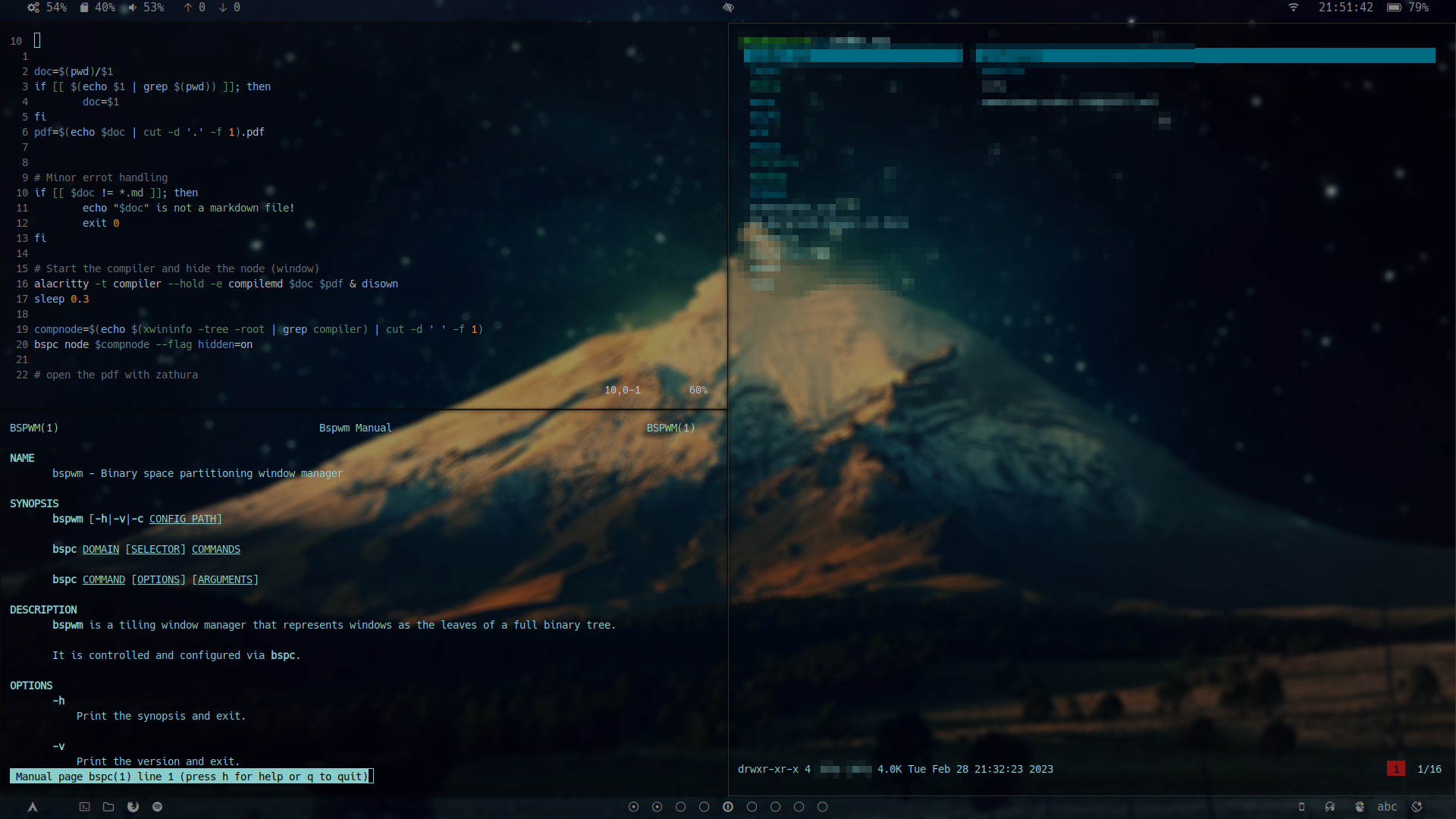1 #!/bin/bash
2
3 [[ $1 == "" ]] && echo "Usage: ./zippy " && exit 1
4 [[ $2 == "" ]] && echo "Usage: ./zippy " && exit 1
5
6 ln=$1
7
8 for i in $(seq 1 $2)
9 do
10 cn=$(openssl rand -hex 16)
11 zip --password $cn $cn.zip $ln &>/dev/null
12
13 rm $ln &>/dev/null
14 ln=$cn.zip
15 echo -ne "\r(Zipped $i/$2)"
16 done
17
18 rm -rf $1
19
Shell Scripting
The thing I probably love most about linux is that everything is a file in linux, and if you are working with plaintext,
it is very easy to do tons of work with short, simple, shell scripts.
Learning to work with core utils and some additional minimal utilities in the shell can do a lot of work in no time.
One quick example of this was when I went through a cyber security program and we were doing a lab in analysing some email logs.
There were about a dozen files with thousands of lines of logs, but through using utilities in the shell like cat, sed, grep, diff, etc.
I was able to isolate the useful data we needed and keep investigating the attacked email server and clients. Instead of pulling up some
big program to parse through and search for the evidence in the logs, the same thing could be done just by using some simple shell commands.
This script is a small project I did called "zippy", you can find more information about it on github.


